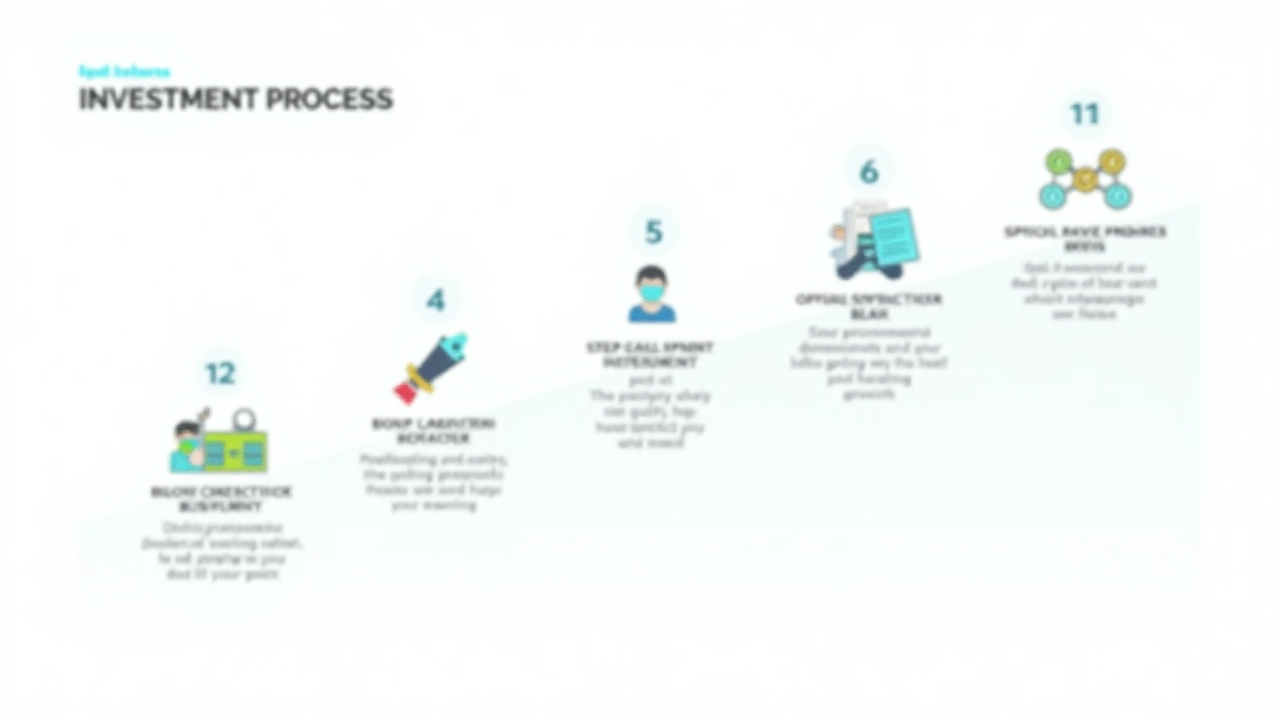
Your comprehensive guide to starting your investment journey in Tanzania with confidence
Starting your investment journey can be both exciting and overwhelming. In Tanzania's growing economy, opportunities abound, but so do potential pitfalls for the uninformed investor. A methodical approach through a comprehensive checklist can help you navigate these waters with confidence.
Our investment checklist is designed specifically for beginners in the Tanzanian market, taking into account local regulations, available investment vehicles, and market conditions unique to our economy. This educational resource will help you establish a solid foundation for your financial future.
Whether you're considering investing in stocks, bonds, real estate, or starting a business venture, this checklist will guide you through the essential steps to make informed decisions.

Percentage of Tanzanians interested in investing but lacking knowledge
Average annual return percentage across diverse Tanzanian investments
Percentage of successful investors who follow a systematic approach
Number of key checklist items essential for new investors
Follow these key steps to build a solid foundation for your investment journey
Begin by clearly defining what you want to achieve with your investments. Are you saving for retirement, education, a home purchase, or building wealth? Each goal may require different investment approaches.
Having clear goals helps determine your investment timeline, risk tolerance, and appropriate investment vehicles.
Before investing, conduct a thorough assessment of your current finances. This includes:
A solid financial foundation is essential before committing funds to investments.
Risk tolerance refers to your ability and willingness to endure market fluctuations and potential losses. Factors affecting risk tolerance include:
Be honest with yourself about how much risk you can truly handle.
Before investing, understand fundamental investment concepts including:
Knowledge is your most powerful tool against investment mistakes.
Familiarize yourself with investment vehicles available locally:
Understanding local options helps you make relevant investment decisions.
Develop a strategic asset allocation based on your goals and risk tolerance:
Diversification helps manage risk while pursuing your financial objectives.
Select trustworthy financial institutions and advisors:
Working with reputable professionals adds a layer of security to your investments.
Before committing to any investment, understand all associated costs:
Fees can significantly impact your investment returns over time.
Begin your investment journey with an amount you're comfortable with:
Starting small allows you to learn without excessive financial risk.
Establish a system to monitor and evaluate your investments:
Regular reviews help ensure your investments remain aligned with your goals.
Protect yourself from fraudulent schemes by knowing red flags:
If it sounds too good to be true, it probably is.
Commit to ongoing learning about investments and financial markets:
The investment landscape continuously evolves, and so should your knowledge.

Investment decisions made early in your financial journey can have profound impacts on your long-term wealth creation. In Tanzania's dynamic economic environment, having a structured approach is particularly important.
Research shows that investors who follow a systematic process consistently outperform those who make impulsive decisions. By working through this checklist, you're not just preparing to invest – you're establishing habits that can serve you throughout your financial life.
Remember that investing is a personal journey. While this checklist provides a comprehensive framework, you should adapt it to your unique circumstances and goals.

Spreading investments across different asset classes helps manage risk. When one investment underperforms, others may compensate, creating balance in your portfolio.
Tanzanian investors should consider diversifying across local stocks, government securities, real estate, and where feasible, international markets.

Understanding that different investments carry different levels of risk is fundamental. Higher potential returns typically come with higher risks.
Effective risk management involves not just diversification, but also appropriate asset allocation based on your risk tolerance and time horizon.

The most successful investors never stop learning. Markets evolve, economies change, and new opportunities emerge regularly.
Dedicate time to understanding not just investment vehicles, but also broader economic factors that influence the Tanzanian market.

Many beginners jump into investments without clear objectives or strategies. This often leads to inconsistent decisions and poor outcomes. Always start with defined goals and a structured plan.
Investing based on tips, rumors, or following the crowd without personal research is risky. Each investment deserves thorough investigation, especially in the Tanzanian market where information may be less readily available than in more developed markets.
Fear and greed are powerful emotions that can lead to buying high and selling low. Develop discipline to stick to your plan despite market fluctuations and economic news cycles.
The impact of fees, commissions, and taxes can significantly reduce investment returns over time. Always factor these costs into your investment decisions and understand the tax implications of different investment approaches in Tanzania.
Equip yourself with these valuable resources to enhance your investment journey

Access to quality information is crucial for making informed investment decisions. Consider these resources:
These resources provide valuable insights into potential investments and broader market trends.

Effective planning and monitoring are essential for investment success:
These tools help you set realistic goals, track progress, and make adjustments as needed to stay on course.

Continuous learning is a cornerstone of investment success. Consider these educational resources:
Combining local knowledge with global perspectives provides a well-rounded investment education.
Building wealth through investments takes time, knowledge, and disciplined action. Our comprehensive checklist is designed to guide you through each step of the process, helping you avoid common pitfalls and make informed decisions.
Have questions about your investment journey? Fill out the form below and our team will provide educational guidance tailored to your needs.